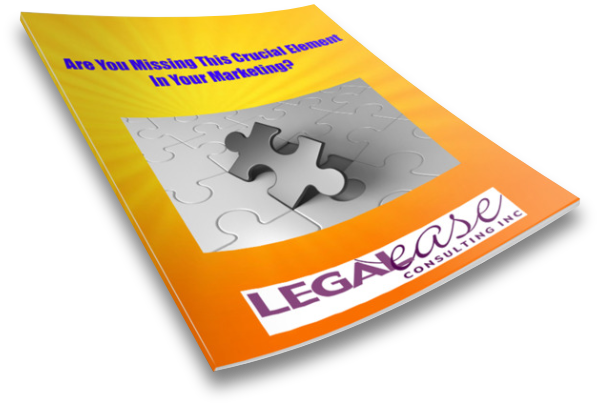
Most good trial lawyers know that telling a story is the best way to get their point across to a jury. But many lawyers forget that storytelling is an essential part of their everyday practice. Even attorneys that will never see the inside of a courtroom can benefit from being good storytellers.
The February issue of Entrepreneur magazine contains a quote from Jeffrey Davis, Founder of Mage, LLC: “All businesses that grow have a story. The more powerful the story, the more it draws people into the organization.”
What’s the story of your practice? Are there specific reasons why you decided to practice in a particular area of the law? Did you decide to pursue adoption law because of difficulties adopting your child? Did you decide to pursue criminal law because you witnessed an injustice? What about your firm? Did its founders have a special reason for coming together?
When others understand or can relate to your story, they feel they have more of a stake in your practice. They’ll be more willing to help the firm succeed. Share your stories with your staff and your clients and create a more powerful connection.
Storytelling is an essential component of marketing, too. Mark Silver of Heart of Business puts out an e-zine, and this week’s edition was entitled “The Healing Power of Marketing.” His main article was all about telling stories in your marketing – and particularly connecting with your target market by telling their stories.
Everyone likes to feel that they’re not alone – that someone understands them and their problems. Storytelling, at its heart, is a way of connecting people with similar experiences. Have you ever listened to the lyrics to a song and thought it was written just for you? If you have, you know what it feels like when your experiences or you feelings are validated, when you feel understood. That’s storytelling. And it’s compelling.
Marketing that conveys an understanding of the client’s problem, and a real solution to that problem, is effective. In order to do that, you must be able to tell the client’s story as well as your own.
Don’t forget that listening is an important part of the equation, too. Listening carefully while clients tell their stories demonstrates empathy and commitment. It helps you tell their story effectively to the court, opposing counsel, claims adjusters, the trademark office, etc. And building a greater understanding of your clients’ stories helps convey to future clients that you understand them and their needs and that you can help them, too.
If you liked these articles, subscribe to my e-newsletter, and you’ll receive new articles in your in-box. The articles in the newsletter are not available to the public – the only way to see those articles is to receive the newsletter.
Already a subscriber? Want to learn how I can help you? Learn more about the products and services I offer by clicking here.

Allison C. Shields
Legal Ease Consulting, Inc
Creating Productive, Profitable and Enjoyable Law Practices
![]()
P.S. Found a mistake or a bug? If there’s anything that bothers you about this site, I want to know! Send me an email at Allison@LegalEaseConsulting.com. I want this site to be not just a resource, but a refuge for lawyers. I want you to be comfortable here. So if there’s something that bothers you, please tell me!



